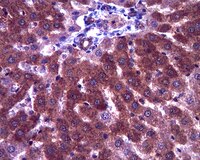ABD24 Sigma-AldrichAnti-Dermo-1 Antibody
Anti-Dermo-1 Antibody is an antibody against Dermo-1 for use in WB, IH(P).
More>> Anti-Dermo-1 Antibody is an antibody against Dermo-1 for use in WB, IH(P). Less<<Recommended Products
Overview
| Replacement Information |
|---|
Key Spec Table
| Species Reactivity | Key Applications | Host | Format | Antibody Type |
|---|---|---|---|---|
| H, R, Ch | WB, IH(P) | Rb | Affinity Purified | Polyclonal Antibody |
| References |
|---|
| Product Information | |
|---|---|
| Format | Affinity Purified |
| Control |
|
| Presentation | Purified rabbit polyclonal in buffer containing 0.1 M Tris-Glycine (pH 7.4), 150 mM NaCl with 0.05% sodium azide. |
| Quality Level | MQ100 |
| Physicochemical Information |
|---|
| Dimensions |
|---|
| Materials Information |
|---|
| Toxicological Information |
|---|
| Safety Information according to GHS |
|---|
| Safety Information |
|---|
| Storage and Shipping Information | |
|---|---|
| Storage Conditions | Stable for 1 year at 2-8°C from date of receipt. |
| Packaging Information | |
|---|---|
| Material Size | 100 µg |
| Transport Information |
|---|
| Supplemental Information |
|---|
| Specifications |
|---|
| Global Trade Item Number | |
|---|---|
| Catalogue Number | GTIN |
| ABD24 | 04053252533044 |
Documentation
Anti-Dermo-1 Antibody SDS
| Title |
|---|
Anti-Dermo-1 Antibody Certificates of Analysis
| Title | Lot Number |
|---|---|
| Anti-Dermo-1 - 2219393 | 2219393 |
| Anti-Dermo-1 - NRG1929412 | NRG1929412 |
| Anti-Dermo-1 -2576385 | 2576385 |

















